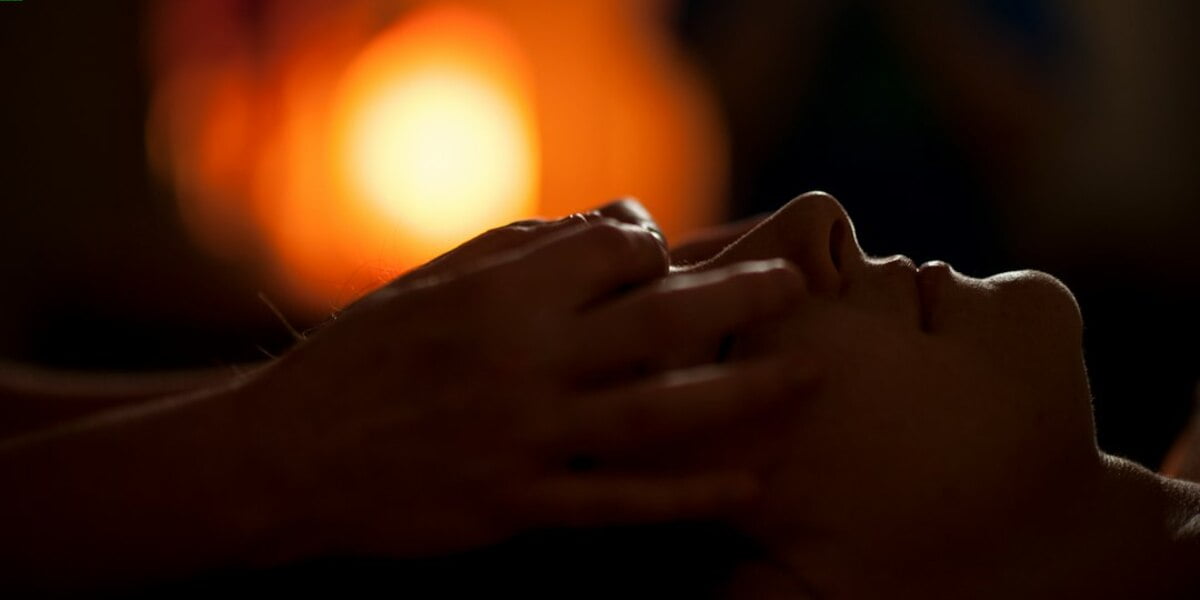Is Reiki Evil? Delving into the Spiritual Controversy
Reiki, a form of energy healing originating from Japan and widely acclaimed for its therapeutic benefits has been increasingly popular. However, some skepticism persists as questions emerge such as “is Reiki evil?” This concern often stems from misconceptions about the nature and practice of Reiki or religious beliefs that perceive non-traditional forms of treatments with suspicion.
This article aims to unravel these misunderstandings around the much-debated argument – is Reiki evil? As we delve deeper into this spiritual controversy surrounding it, understanding the principles behind this age-old Japanese treatment method becomes paramount. Further along in our discussion will be insights drawn from testimonials as well as expert opinions on why such negative connotations are falsely associated with an otherwise serene process aimed at harmony among mind, body and spirit.
Did you know?
Contrary to public discourse, the International Center for Reiki Training (ICRT) reports that many Christian denominations accept or even endorse Reiki as a healing technique.
Debunking Myths: The Nature of Reiki and Energy Healing
It’s crucial to address the question that often emerges in conversation regarding reiki and energy healing, “Is Reiki evil?” To dispel this pressing concern, let us first understand what these practices are fundamentally about. The conception of any spiritual or alternative healing practice as ‘evil’ stems more from a lack of understanding than factual knowledge.
Reiki is an ancient Japanese technique for stress reduction and relaxation that also promotes wellness. It works on the philosophy where a soothing life force energy flows through our bodies. When it’s low we feel sick or stressed, while when high we are capable of happiness and healthiness.
Clearly defined, there is nothing about its nature that could be construed as harmful or malevolent.
Conversely, Energy Healing operates by harnessing holistic techniques to clear blockages within our energetic field so optimal physical well-being can be attained—a strategy grounded on love-infused intentions for betterment rather than harm.
Understanding the Principles of Reiki
Reiki, originated in Japan, has become a widely accepted form of energy healing worldwide. Despite this recognition and acceptance, there exist several misconceptions about the holistic therapy method as some skeptics label it ‘evil’. Confronting such myths head-on will help dispel any needless fears.
To begin with, let’s clear up the question on many people’s lips – “is reiki evil?”. The simple answer is no. Reiki is not grounded in negativity or harm.
In fact, its origins lie deeply embedded in positivity and well-being both for oneself and others. As part of universal life force energy that everyone possesses within themself already; practitioners channel positive energies to promote natural healing processes throughout physical bodies while also aiding mental wellbeing efforts.
When questioning if reiki aligns itself more towards an occult practice because of its nontraditional nature – we need to understand what exactly classifies something as occult activity first before leaping ahead to conclusions based solely upon misunderstandings or unfamiliarity surrounding Reiki techniques.
Addressing Common Misconceptions About Reiki
Reiki, a popular form of energy healing, has often been misunderstood due to the swirl of myths surrounding it. One such misconception is that “is reiki evil?” It’s important to address this concern as part of shedding light on what Reiki truly entails.
To start with, Reiki is not affiliated with any particular religion or religious practice. Its roots may be traced back to ancient Buddhists and Tibetan monks; however, understanding and practicing reiki does not require adherence to any specific religious belief system. Therefore, labeling it as ‘evil’ based purely on spiritual misconceptions would be unfounded.
Another common myth in circulation states that one can get negatively influenced or even harmed through Energy Healing practices like Reiki because they might open up channels for negative energies. This couldn’t be farther from the truth! A certified practitioner always ensures an atmosphere of positivity while performing these sessions so there are no chances for any unwanted influences.
Additionally, some people believe receiving Reiki treatments could counteract other medical treatment efforts they’re taking concurrently thereby causing harm indirectly. The reality? On the contrary – Hospitals worldwide have begun integrating various forms of complementary therapies including Reiki into their comprehensive patient care plans due its calming effect which aids in dealing with anxiety before surgeries and helps increase overall wellness during recovery periods post-treatment procedures without interfering with traditional medicines being taken by patients at all!
Ethical Perspectives on Energy Work: Is Reiki Malevolent?
When discussing energy work, it’s natural for questions around their ethical implications to arise. Reiki, a form of energy healing that originated in Japan and has gained global popularity over the last century, is one such practice that often stimulates debates about its morality. The query “Is reiki evil?” may seem startling at first but represents an intriguing examination into this holistic method from both skeptical and philosophical angles.
Reiki operates on the principle of channeling universal life force or ‘Chi’ through practitioners to induce self-healing and balance in receivers. Despite this non-invasive approach towards wellness which prioritizes harmony with nature above all else indispensable misconceptions persist claiming reiki as malevolent. This perception can emanate largely from misunderstanding or distorted views resulting from religious conditioning or societal misapprehensions regarding alternative therapies.
However, refuting these notions demands understanding the core philosophies underpinning Reiki – i.e., promoting health without causing harm – abiding by principles ensconced within many traditional medicinal systems worldwide since antiquity like Ayurveda & Traditional Chinese Medicine(TCM). Further research manifests no instances supporting claims rendering Reiki injurious ensuring mental peace during sessions while mitigating physical ailments empathetically.
Analyzing Historical Views on Spiritual Healing Practices
The concept of spiritual healing practices like Reiki has been a source of contention for many throughout history. It’s critical to decipher whether the often-asked question, “is reiki evil,” holds any real substance.
One can trace back several thousand years ago when ancient cultures adopted various forms of energy work as part of their religious ceremonies and health rituals. From China’s Qi Gong to India’s Pranic Healing, these methods tapped into universal life forces believed to stimulate physical healing and emotional balance.
Reiki hails from this lineage but is relatively younger in its formation—coming into existence during Japan’s late 19th century by Mikao Usui. Despite its comparatively new status on the spiritual stage, it still manages to tap deeper roots through shared principles with older mystical traditions.
In most historical contexts, practitioners view Reiki as inherently benevolent due to its fundamental principle—the intent behind application matters significantly more than the practice itself—an idea which creates pause against claims that term Reiki malevolent or ‘evil’.
Evaluating Moral Implications in Modern Energy Therapies
Does Reiki carry an evil connotation or is it a misinterpretation? This question often circulates within the realm of energy therapies. In our analysis, we explore multiple facets to answer this fundamental query – Is Reiki Evil?
The first aspect that deserves attention is the origin and nature of Reiki. Rooted in Japanese philosophy, its name translates as ‘spiritually guided life force energy’. The primary purpose behind practicing reiki involves nurturing self-growth and healing through tapping into universal energies.
Revisiting historical perspectives on spiritual practices might be useful here. Spiritual traditions around the world have consistently emphasized harnessing higher powers for personal growth rather than malicious intent. It would thus seem contradictive to label such a practice with negative undertones like ‘evil’.
Next, let us reflect upon practitioners’ intentions while executing Reiki sessions: Are they focused on promoting wellness and emotional relief through channelizing positive energies? Or do they harbor negative intents veering towards malevolence? Overwhelming evidence from therapists worldwide point at motivations driven by compassion rather than any ill will.
However, skepticism arises when there are claims related to manipulating others against their free will using Reiki—an ethical concern indeed! But conferring ‘evilness’ based solely upon probable misuse seems quite unfair considering various other tools—ranging from technology to law—are susceptible equally if not more so!
Personal Experiences with Reiki: Testimonies and Transformations
The realm of Reiki and energy healing often brings forth varied perspectives, some brimming with positive transformation while others riddled in skepticism. A common question that surfaces is “is reiki evil?” This query primarily stems from those who have yet to experience its profound impact on the human psyche and physical well-being or might be misinformed about it.
Delving into personal testimonies can shed light on this misconception. Often individuals who embark on their journey with Reiki experience an array of transformations; a newfound sense of peace replacing previous anxiety, inner strength flourishing where doubt once resided or even chronic pain subsiding over regular sessions. Drawing from these experiences debunk the myth around “Reiki being evil” offering instead a kaleidoscope view into how it fosters individual healing and growth.
It’s essential to remember that each practitioner’s interpretation varies based upon their own unique interaction with this ancient Japanese technique for stress reduction and relaxation. Nonetheless, one consistent theme reverberates through all stories – Reiki serves not as malign magic force rather it enables self-healing by channelling life-force energies leading towards equilibrium between mind body spirit.
Documented Case Studies Of Positive Outcomes Through Reiki
Remarkably notable are several medical cases where patients have experienced unprecedented recovery assisted by regular participation in the practice of Reiki energy healing sessions.
Consider for instance Sarah’s miraculous tale from Melbourne. Diagnosed with chronic fatigue syndrome at 27-years-old; she was debilitated to such an extent that even routine tasks seemed mountainous. But once initiated into the world of reiki therapy through a holistic health practitioner friend – her life took on new momentum as if pivoted better than it ever had been before.
Or take James’s experience – living testimony revealing how positive outcomes ensued after practicing honor variation (Usui) reiki along his journey battling depression & anxiety rampant since late teens bringing him positivity he never foresaw coming his way priorly.
Yet another individual whose story speaks volumes about transformation via energy-healing practices goes by name Sandra who suffered debilitating migraine attacks none traditional modalities assuaging or mitigating till she embraced this relatively unheard Japanese-origin therapeutic modality leading herself towards improved mental well-being eventually allowing regain lost focus concentration thus reflecting amplified productivity across every sphere- professional personal chores alike benefiting immensely thus!
Stories of Transformation: How Energy Healing Can Foster Growth
The transformative power of Reiki and Energy Healing is often best expressed through personal experiences. Hence, let’s delve into some soul-stirring stories that reveal how this energy practice can foster growth and nullify the query – “is reiki evil”.
Jane Doe’s life was a tumultuous storm before she discovered reiki in late 2022. Anxiety had become her constant companion, leaving no room for peace or contentment. The turning point came when she ventured into a local holistic health seminar where an enthusiastic speaker introduced the concept of Reiki.
It became apparent within few sessions itself that Jane was undergoing immense transformation from inside out. Her anxiety attacks decreased gradually, replaced by bouts of serenity which were previously foreign concepts for her.
John Smith felt trapped in his own skin throughout his early adulthood years until he encountered energy healing technique known as ‘Rei-ki’ also termed ‘universal life force’ back in summer of 2023.
Conclusion
As we have seen, questions about whether “is Reiki evil” often stem from misunderstanding or fear of the unknown. Rather than being a sinister force, Reiki is an age-old spiritual practice that promotes balance and healing. Like any tool, it typically mirrors the intent of its user – so in hands with good intentions; it’s likely to yield positive outcomes.
Thank you for taking time to explore this controversial topic with us today! This spirited discourse only scratches the surface of what there is to learn about Reiki and Energy Healing practices. Feel free to discover more enlightening content available on our website where we continuously shed light on these fascinating subjects as part of our dedicated effort towards nurturing your soul’s journey.







